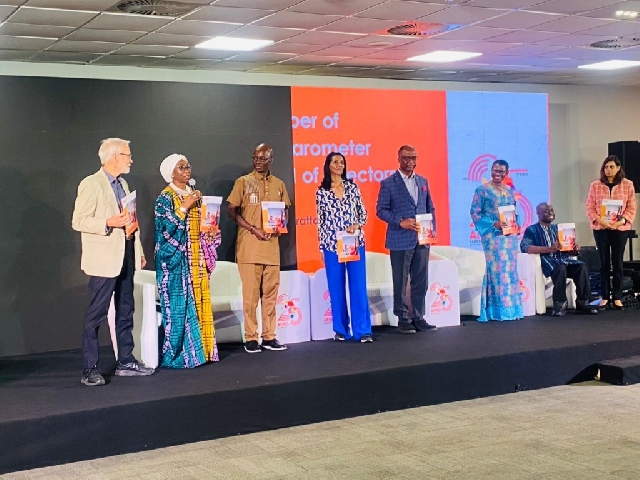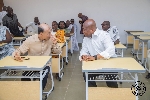Africa's youth dissatisfied with democracy – Afrobarometer report
 The report reveals that about 53 per cent of Africans believe the military should intervene when governments fail or abuse their office
The report reveals that about 53 per cent of Africans believe the military should intervene when governments fail or abuse their office
Afrobarometer’s latest flagship report on Democratic Trends in Africa has uncovered a growing dissatisfaction with democratic governance among the continent's youth.
The extensive survey, conducted across 39 African countries, highlights an alarming trend: a significant number of young people are increasingly viewing military rule as a temporary remedy to the failures of civilian leadership.
Key factors driving this disillusionment include unemployment, corruption, and a lack of accountability.
During the report’s launch in Accra on Wednesday, 17 July 2024, Boniface Dulani, Director of Surveys at Afrobarometer, expressed concern over this shift in attitude.
He noted that many young people have never experienced military rule and might be underestimating its dangers.
“Most of the youth have never experienced military rule, so they might be looking at it as something to try because democracy is failing. But if you’ve lived through a military regime, you might know that as bad as democracy is, it’s certainly better than that kind of government,” Mr. Dulani stated.
The report reveals that about 53 per cent of Africans believe the military should intervene when governments fail or abuse their office. However, many still reject military rule, although this opposition is waning.
“What this tells us is that the military rule is being looked at as an option when civilians have failed and they’re looked at as a temporary solution, not a permanent one,” Mr. Dulani emphasised.
He, therefore, urged African governments to address the concerns of their citizens seriously.
“Governments should never take people for granted, because although there was an excitement for democracy in the 1990s, what we’re seeing now is that people are not happy with democracy and asking themselves questions of what democracy is really offering to them and trying to find other alternatives,” Mr. Dulani added.
Source: classfmonline.com/Elikem Adiku
Trending News

Okudzeto-Ablakwa inaugurates smart classrooms to boost STEM education in North Tongu
11:38
Activist Felicity Nelson brings Christmas comfort to Accra Police cells
08:32
First batch of large-scale mining licences to face possible revocation revealed
09:08
A/R: Kumawu MP celebrates Christmas with drivers and Okada riders
07:57
IGP Special Operations Team arrests suspect in Kpalsi over suspected Indian Hemp
07:48
Kumawu MP shares Christmas with aged, widows in Constituency
07:39
WN/R: Two school staff members arrested for theft of students' food items at Sefwi Bekwai
02:13
Ghana launches one-day expedited passport service
15:25
IGP Christian Tetteh Yohuno promotes 13 senior police officers for distinguished service
21:58
Goldbod to put rest alleged claim of losses on Monday, Jan.5
15:08




